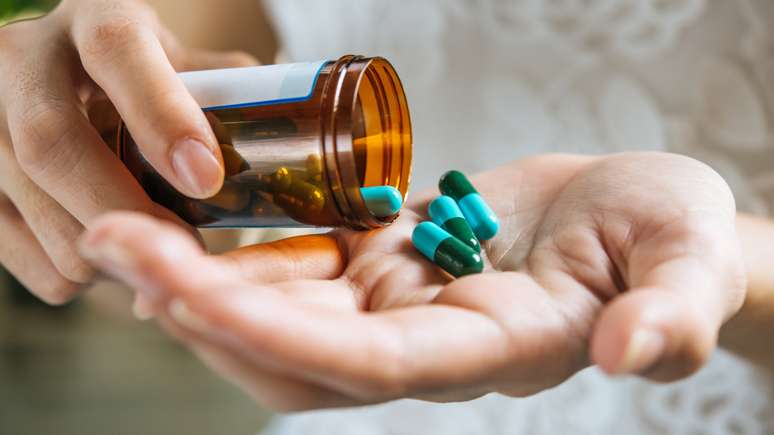In this week’s column, Jamar Tejada talks about the importance of taking medications or supplements at the right time and provides tips to help our readers
In my daily life as a pharmacist I always receive questions about the correct way to take medicines. Today, with our busy lives, we end up forgetting to take medicines at the right time and “skipping” treatment – when we don’t take them twice to make up for the “gap” in our schedule.
And this is not the only mistake. Some take it with food, when the medicine should be taken away, or, conversely, take it on an empty stomach when they should have a “full” stomach. Others start to feel better and decide not to complete the prescribed treatment, as well as those who feel no improvement and stop on their own because they think it isn’t working. There are many reasons, but is it all right?
Is there an ideal time to take medicine?
It is important to know that there is no single right time to take any type of medication or supplement. It would be perfect if that were the case. The times will depend on the form of absorption and metabolization (transformation of one substance into another during metabolism) and on the active ingredient of each drug or supplement – which occurs mainly in the liver, i.e. on the time the drug or supplement remains circulating in the blood or at the time of day most suitable for its action. Each medicine and supplement has its own peculiarity.
Drug interactions also occur, meaning when one drug or supplement reacts with another or even with drinks and foods you may have consumed, this can all have an influence. For more information, you can access my text on foods and drinks that we should pay attention to when taking drugs, here at Bons Fluidos.
Therefore, taking the drug or supplement at the right time and in the right way makes a difference. And this applies to all ages or specialties, so much so that chronopharmacology exists, a science that studies the most appropriate time to take drugs. Your doctor, pharmacist or nutritionist can check the best time and interval to prescribe the drug or supplement based on the functioning of your body, your habits and your routine.
Tips for taking the medicine or supplement correctly
To help you, I have collected some tips for the success of your treatment, but if in doubt, always ask your doctor:
1. Make a list of all the medications you already use, and talk to your doctor, pharmacist, or nutritionist about any problems or questions that arise based on your diagnosis. It’s also important to talk about what you’re already using and for how long.
two. Don’t forget to also report if you suffer from any type of allergy.
3. If you forget to take your medicine at the right time, never take two doses when you remember. Readjust the time so that the medicine takes effect within the desired period and remember that the possibility of having a negative effect when taking two doses together is high.
4. The recommendation for the ideal time and interval for continuous use of the medications varies. Your healthcare provider will be able to inform you about this during the consultation.
5. Never stop taking your medications if you think you feel better or that the medicine or supplement is not working. Each of them has a specific duration of action and stopping will stop the treatment and you will often need to start again.
6. Any changes in your routine, whether in medications and supplements or in your diet, should be reported to your doctor. He will check for the need for adjustments in medications or supplements.
7. All medicines come with a package leaflet. Read the information and, if you have any questions, talk to a healthcare professional before starting any treatment to avoid unwanted effects.
8. If during treatment you experience signs or symptoms such as nausea or vomiting, bad taste in the mouth, diarrhoea, excess or loss of sleep, mood changes, vision changes or skin changes such as redness, plaques, blisters or itching, remember that these these could all be signs of allergies. Immediately notify your healthcare provider so that he can evaluate and decide whether or not to suspend treatment or change medication.
9. If the drug causes drowsiness, it should be taken before bedtime and, if this is not possible, avoid activities that require special attention, such as driving, using machinery, taking tests or activities that require a lot of concentration.
10. Older adults who generally take multiple medications at the same time are more likely to forget to take the prescribed dose of the medication. In these cases there are some additional tips.
11. You can use the pill box for the week, but you can also keep the original packaging and leaflet, clean them well, avoid direct hand contact with the medicine or supplement when handling it, and avoid places with temperature differences and humidity, such as bathroom, kitchen and car glove compartment or places with direct light. If you have to transport them by car, always do so in a cool bag, away from direct sunlight.
12. Place a reminder of your medicine time in an easily accessible place – it is worth placing it on the fridge door, on the notice board, in the diary and alarm clock on your mobile phone or in apps that can help you.
Tips for taking medications and supplements daily
To maintain proper treatment with maximum success, it is important to take all medications or supplements as directed by your doctor. Some tips can help in this process. Are they:
1. Set the same time to take your medications or supplements each day.
2. Schedule times to take your medications or supplements as part of your routine.
3. It is very important to check whether medications and supplements should be taken on an empty or full stomach.
4. Keep a “medicine calendar” with your pill bottles and capsules and write down each time you take a dose. This is very important, especially for the elderly and prevents overdose.
5. Fill your “calendar” at the same time every week, for example every Sunday morning after coffee.
6. Do not interrupt treatment while traveling. Make sure you take enough for your treatment, plus a few extra, in case your return is delayed or something unexpected happens. If you travel by plane, carry your medicines preferably in your hand luggage, remembering that the temperatures inside the cargo compartment can damage the medicines.
How do I choose the times to take medications/supplements?
Medicines and supplements every 12 hours
As it can be written in the medical prescription: 12/12 hours = twice a day = 1+1 = 1-0-1 = Take at dawn and in the late afternoon. The 3 suggested times are: 07:00 and 19:00, 08:00 and 20:00, 09:00 and 21:00.
Medicines and supplements every 8 hours
As may be written in the medical prescription: 8/8 hours = three times a day = 1+1+1 = 3 tablets per day. The 2 suggested times are: 06:00, 14:00 and 21:00 or 07:00, 15:00 and 23:00.
Medications/supplements every 6 hours
As may be written in the medical prescription: 6/6 hours = four times a day = 1+1+1+1 = Take at dawn, at midday, in the late afternoon and before going to bed. The suggested times are 06:00, 12:00, 18:00 and 00:00. You will inevitably have to wake up to take the medicine. Use the alarm clock.
Drugs every 4 hours
As it can be written in the medical prescription: 4/4 hours = six times a day = 1+1+1+1+1+1. Suggested times are 06:00, 10:00, 14:00, 18:00, 22:00, 02:00. You will inevitably have to wake up to take the medicine. Then use the alarm clock.
An excellent treatment!
Source: Terra
Ben Stock is a lifestyle journalist and author at Gossipify. He writes about topics such as health, wellness, travel, food and home decor. He provides practical advice and inspiration to improve well-being, keeps readers up to date with latest lifestyle news and trends, known for his engaging writing style, in-depth analysis and unique perspectives.








